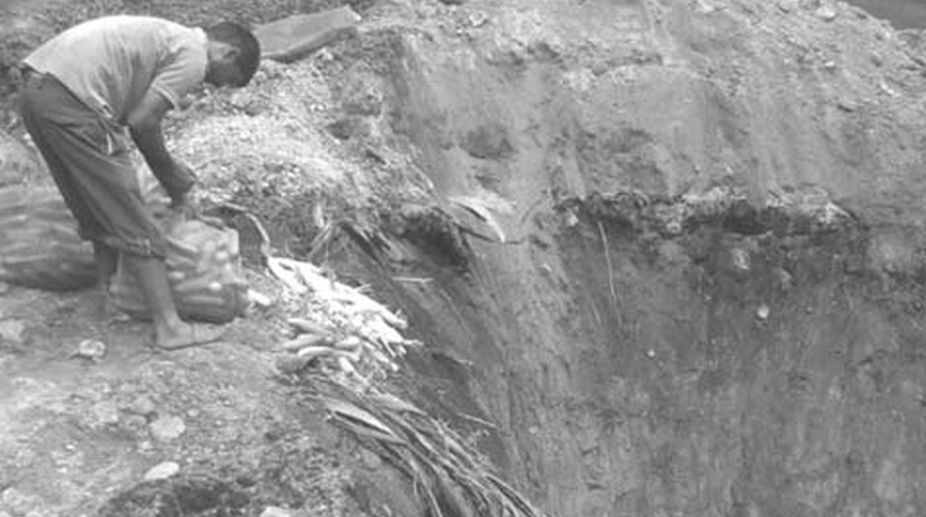The state government on Wednesday disposed of inorganic vegetables that it had seized from markets in Gangtok on Monday. The vegetables seized from different shops at Lall Bazaar here were brought from Siliguri and were worth over Rs 2,50,00.
The veggies were buried in the ground at Majhitar in East Sikkim this afternoon. While a ban on the import of inorganic vegetables from outside Sikkim is in place since 1 April, markets across the state have witnessed an acute shortage of vegetables and fruits.
The government later eased the ban and allowed supply of tomato, chilly and carrot from outside. However, after the government failed to supply adequate organic produce to the markets, traders in Gangtok had said they would import all the vegetables and fruits that were in short supply in the state.
An opposition political party, Sikkim United Front (SUF), condemned the government’s policies, and more so its decision to destroy the vegetables (worth lakhs of rupees), and said that the move was “inhuman and inappropriate, at a time when people in different parts of the country are dying of hunger.”
“Sikkim has been suffering from the wrong decisions and policies of the state government in the organic mission. The decision to ban inorganic vegetables lacks farsightedness and it is not in the interest of the people of Sikkim,” SUF founder member Tirtha Sharma told a press conference here.
He added that people have the right to have food of their choice. “If the state government is really serious, then it should ban casinos, alcohol and lotteries, which have been directly affecting the people of Sikkim,” Mr Sharma said.
According to him, the state had been facing the present problem due to the wrong figures of organic production in the state provided by officials concerned to the government.
He also demanded strict vigilance as, according to him, there were good chances that mafias packed inorganic vegetables and supplied as organic in the state. Another SUF founder member, Narendra Adhikari, said that the ban in itself was a “welcome move,” but that the implementation part was poor and not in the interest of the people.
“If the government was really sincere then the state should have set up laboratories to test the organic produce,” he said. He further said that except for a cold storage established during the earlier Nar Bahadur Bhandari regime at Majhitar, there was no other cold storage in the state.










